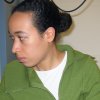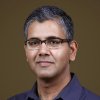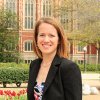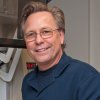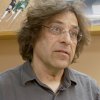RESEARCH AREAS
- Humanities (102) Apply Humanities filter
- Economics (8) Apply Economics filter
- History (6) Apply History filter
- Performing Arts (2) Apply Performing Arts filter
- Anthropology (7) Apply Anthropology filter
- Sociology (9) Apply Sociology filter
- Music (2) Apply Music filter
- Psychology (15) Apply Psychology filter
- Virtual Arts (1) Apply Virtual Arts filter
- Archaeology (3) Apply Archaeology filter
- Law / Ethics (4) Apply Law / Ethics filter
- Political Science (6) Apply Political Science filter
- Global Policy (31) Apply Global Policy filter
- Veteran's Causes (34) Apply Veteran's Causes filter
- Poverty & Equality (9) Apply Poverty & Equality filter
- Environment (135) Apply Environment filter
- Clean Energy (53) Apply Clean Energy filter
- Geology (7) Apply Geology filter
- Oceanic (31) Apply Oceanic filter
- Chemical (18) Apply Chemical filter
- Ecology (57) Apply Ecology filter
- Atmospheric / Space (23) Apply Atmospheric / Space filter
- Remediation (8) Apply Remediation filter
- Agriculture (8) Apply Agriculture filter
- Natural Disasters / Emergency (23) Apply Natural Disasters / Emergency filter
- Life Science (285) Apply Life Science filter
- Infectious (39) Apply Infectious filter
- Health IT (35) Apply Health IT filter
- Cardiovascular (28) Apply Cardiovascular filter
- Musculoskeletal (8) Apply Musculoskeletal filter
- Diagnostics (43) Apply Diagnostics filter
- Metabolic / Diabetes (25) Apply Metabolic / Diabetes filter
- Respiratory (3) Apply Respiratory filter
- Immunology / Inflammatory (44) Apply Immunology / Inflammatory filter
- Circulatory (5) Apply Circulatory filter
- Neurological / Cognitive (109) Apply Neurological / Cognitive filter
- Genomics / Congenital (44) Apply Genomics / Congenital filter
- Telemedicine (4) Apply Telemedicine filter
- Proteomics (7) Apply Proteomics filter
- Oncology / Cancer (73) Apply Oncology / Cancer filter
- Regenerative Medicine (25) Apply Regenerative Medicine filter
- Evolution (5) Apply Evolution filter
- Mental Health, Depression Research (2) Apply Mental Health, Depression Research filter
- Pain Management Research (1) Apply Pain Management Research filter
- Cancer Research (1) Apply Cancer Research filter
- Pediatric (15) Apply Pediatric filter
- IOT & Medical Devices (1) Apply IOT & Medical Devices filter
- Stem Cell (13) Apply Stem Cell filter
- Drug Development (6) Apply Drug Development filter
- Women's Health (9) Apply Women's Health filter
- Technology (238) Apply Technology filter
- Nanotechnology (30) Apply Nanotechnology filter
- Cybersecurity (12) Apply Cybersecurity filter
- Photonics / Imaging (8) Apply Photonics / Imaging filter
- Computational Sciences / Mathematics (82) Apply Computational Sciences / Mathematics filter
- Informational Sciences / Internet (47) Apply Informational Sciences / Internet filter
- Semiconductor (4) Apply Semiconductor filter
- Robotics (18) Apply Robotics filter
- Space (42) Apply Space filter
- Telecommunications (6) Apply Telecommunications filter
- Electronics / Sensors (14) Apply Electronics / Sensors filter
- Chemistry (36) Apply Chemistry filter
- Fluidics (3) Apply Fluidics filter
- Materials Science / Physics (68) Apply Materials Science / Physics filter
- IOT, Devices, Data (84) Apply IOT, Devices, Data filter
- Education (38) Apply Education filter
- Linguistics (4) Apply Linguistics filter
- Women in STEM (4) Apply Women in STEM filter
- Empowering Women (6) Apply Empowering Women filter
- Neuroscience (6) Apply Neuroscience filter
- Classroom Techniques (4) Apply Classroom Techniques filter
- Policy (2) Apply Policy filter
- Behavioral & Development (7) Apply Behavioral & Development filter
- Technology (3) Apply Technology filter
- Mentoring (2) Apply Mentoring filter
- STEM (5) Apply STEM filter
- Health & Wellness (58) Apply Health & Wellness filter
universities/institutions
- Baylor College of Medicine (3) Apply Baylor College of Medicine filter
- Carnegie Mellon University (7) Apply Carnegie Mellon University filter
- Columbia University (7) Apply Columbia University filter
- Cornell University (8) Apply Cornell University filter
- Drexel University (4) Apply Drexel University filter
- Harvard University (17) Apply Harvard University filter
- Harvard University (Medical School) (4) Apply Harvard University (Medical School) filter
- Indiana University Bloomington (6) Apply Indiana University Bloomington filter
- International Computer Science Institute (5) Apply International Computer Science Institute filter
- Johns Hopkins University (9) Apply Johns Hopkins University filter
- Massachusetts Institute of Technology (10) Apply Massachusetts Institute of Technology filter
- Michigan State University (5) Apply Michigan State University filter
- New York University (10) Apply New York University filter
- North Carolina State University (4) Apply North Carolina State University filter
- Northwestern University (6) Apply Northwestern University filter
- Ohio State University (7) Apply Ohio State University filter
- Princeton University (5) Apply Princeton University filter
- Purdue University (4) Apply Purdue University filter
- Rice University (6) Apply Rice University filter
- Rutgers University (46) Apply Rutgers University filter
- Stanford University (16) Apply Stanford University filter
- Stony Brook University (5) Apply Stony Brook University filter
- Syracuse University (20) Apply Syracuse University filter
- The University of Tennessee, Knoxville (5) Apply The University of Tennessee, Knoxville filter
- The University of Texas at Austin (21) Apply The University of Texas at Austin filter
- University of California, Berkeley (6) Apply University of California, Berkeley filter
- University of California, Davis (7) Apply University of California, Davis filter
- University of California, Irvine (12) Apply University of California, Irvine filter
- University of California, Los Angeles (13) Apply University of California, Los Angeles filter
- University of California, Riverside (4) Apply University of California, Riverside filter
- University of California, San Diego (92) Apply University of California, San Diego filter
- University Of California, San Francisco (9) Apply University Of California, San Francisco filter
- University of California, Santa Cruz (6) Apply University of California, Santa Cruz filter
- University of Colorado, Boulder (8) Apply University of Colorado, Boulder filter
- University of Florida (9) Apply University of Florida filter
- University of Illinois Urbana-Champaign (8) Apply University of Illinois Urbana-Champaign filter
- University of Maryland College Park Campus (11) Apply University of Maryland College Park Campus filter
- University of Michigan (8) Apply University of Michigan filter
- University of Minnesota (10) Apply University of Minnesota filter
- University of North Carolina Chapel Hill (5) Apply University of North Carolina Chapel Hill filter
- University of Oregon (4) Apply University of Oregon filter
- University of South Florida (4) Apply University of South Florida filter
- University of Southern California (4) Apply University of Southern California filter
- University of Utah (4) Apply University of Utah filter
- University of Washington (15) Apply University of Washington filter
- University of Wisconsin-Madison (28) Apply University of Wisconsin-Madison filter
- Vanderbilt University (8) Apply Vanderbilt University filter
- Washington State University (4) Apply Washington State University filter
- Washington University (4) Apply Washington University filter
- Yale University (18) Apply Yale University filter



